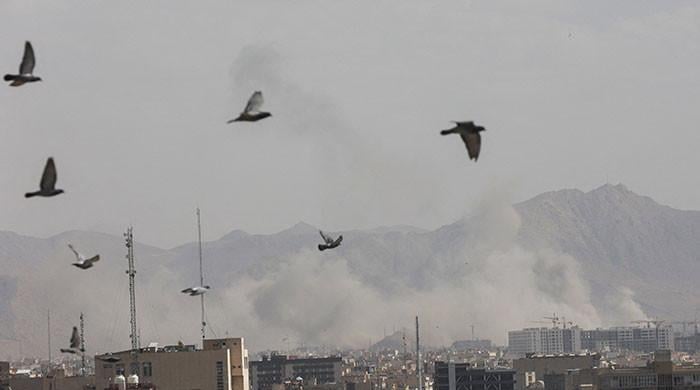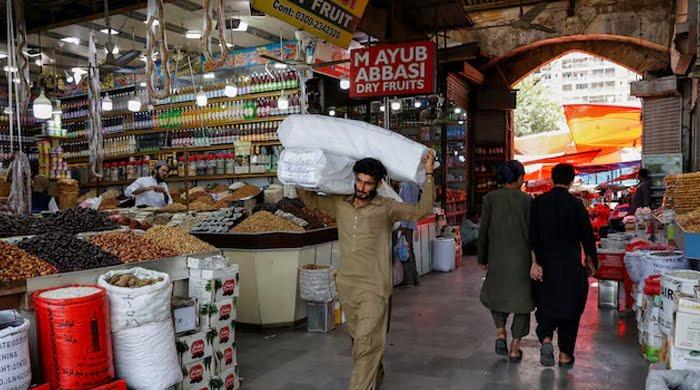In Focus: Jadhav case
The ICJ cannot order Jadhav’s release or rule on the lawfulness of the death penalty.
December 21, 2017
Proceedings before the International Court of Justice (ICJ) between India and Pakistan in Kulbhushan Jadhav’s case have entered into their next stage. Both parties have now submitted their written pleadings to the ICJ, and barring any additional requests for replies or rejoinders, we could see oral hearings start as early as the first quarter of next year.
Now that the initial media excitement – which regrettably was largely fuelled by nationalist sentiment, not a dispassionate assessment of the relevant international law - is somewhat behind us, it is worth looking at what exactly this case is about and what we can expect moving forward.
Allegations
In short, India has alleged “egregious violations of the Vienna Convention on Consular Relations (VCCR)” by Pakistan in connection with the detention, trial and conviction of Indian national Kulbhushan Jadhav.
India has claimed that denial of consular access to Jadhav breaches Pakistan’s obligations under Article 36(1) of the VCCR. This provision, among other things, provides that when a national of a foreign country is arrested or detained, the detainee must be advised of the right to have the detainee’s consulate notified and that the detainee has the right to regular consultation with consular officials during detention and trial.
India has also argued that the ICJ has jurisdiction to hear this case as the Optional Protocol to the VCCR, which both India and Pakistan are a party to, gives the International Court of Justice mandate to try disputes that arise from the treaty.
Pakistan's case
According to Pakistan, Jadhav was involved in espionage and terrorism-related activities in the country.
Responding to India’s allegations, Pakistan has primarily argued: (1) The VCCR is not applicable to spies or “terrorists” due to the inherent nature of the offences of espionage and terrorism; (2) a bilateral agreement on consular access, signed by India and Pakistan in 2008, overrides the obligations under the VCCR; and (3) reservations made under Article 36(2) of the ICJ Statute are also applicable to cases under Article 36(1) of the ICJ Statute.
Pakistan’s arguments appear to be on a weak legal footing. For example, the VCCR does not make any exception for people suspected of (or even convicted of) committing espionage or terrorism-related offences and the ICJ has in the past also not interpreted the treaty to exclude such offences from VCCR protections.
Pakistan’s position is not just untenable; it is also dangerous. Making rights pertaining to consular access under the VCCR contingent upon the offence foreign nationals are charged with would undermine the very purpose of the treaty. It would allow States to deny consular access to foreign nationals merely through a particular characterization of their acts. Today it is an Indian citizen. Tomorrow it could also be Pakistani nationals who could have their rights curtailed merely on the ground of the alleged offence.
Pakistan’s argument that the 2008 bilateral treaty - which states that in cases of “arrest, detention or sentence made on political or security grounds, each side may examine the case on its merits” - overrides the VCCR, a multilateral treaty, is also not convincing.
Authoritative interpretations of relevant provisions in the VCCR and general provisions of treaty law clarify that treaty obligations under the VCCR may be enhanced or clarified by bilateral treaties, but cannot be diluted or undermined.
The ICJ, of course, will decide these issues in its final judgment.
This brings us to another important point. Much of what has been raised in the media regarding the strength of Pakistan’s case - such as Jadhav’s televised “confessions”, details of the charges against him, evidence of India’s alleged role in “sponsoring terrorism” in Balochistan, the human rights situation in Kashmir - is very likely going to be irrelevant as it has little impact on the questions that the ICJ is considering, in this case, i.e. the applicability of Article 36 of the VCCR and the right to consular access.
Relief measures
Another key issue is that if the ICJ finds Pakistan to be in breach of its international legal obligations, what specific measures can it order?
We should recall that in May 2017, the ICJ issued an order for provisional measures in response to India’s request, and directed Pakistan to “take all measures at its disposal” to ensure Jadhav is not executed pending the final decision of the Court. Such measures, however, are only indicated pending the final decision of the Court and that they cease to apply once the judgment of the Court is given.
India has also requested a number of other measures of relief from the ICJ, including the annulment of Kulbhushan Jadhav’s death sentence; a declaration that his military trial was in violation of the VCCR and international human rights law; a directive restraining Pakistan from giving effect to the death sentence; and a directive to release Kulbhushan Jadhav.
Significantly, the ICJ, pursuant to its jurisdictional competencies, can only decide whether Pakistan breached its obligations under Article 36 of the VCCR and order related relief. This may include, for example, directions to Pakistan to “review or reconsider” Jadhav’s conviction and sentence and to guarantee that similar breaches won’t occur in future. In these proceedings, the ICJ cannot determine whether Jadhav’s trial was in violation of the ICCPR. It is also unlikely that the Court can order Jadhav’s release or rule on the lawfulness of military trials or the death penalty in Pakistan.
Lose-lose (or win-win)?
There is a possibility that the ICJ could dismiss Pakistan’s arguments on the merits of the case and hold that by denying Jadhav consular access, Pakistan breached its obligations under the VCCR.
At the same time, the ICJ could also deny a large number of the specific measures requested by India for lack of jurisdiction.
Regardless of the outcome, one hopes that this case makes the government start taking its international commitments more seriously, and the media to start taking interest in Pakistan international legal obligations beyond this one high-profile case.
- Omer is a legal adviser for the International Commission of Jurists. She tweets @reema_omer
Note: The views expressed by the author do not necessarily reflect the official policy or position of Geo News, The News or the Jang Group











